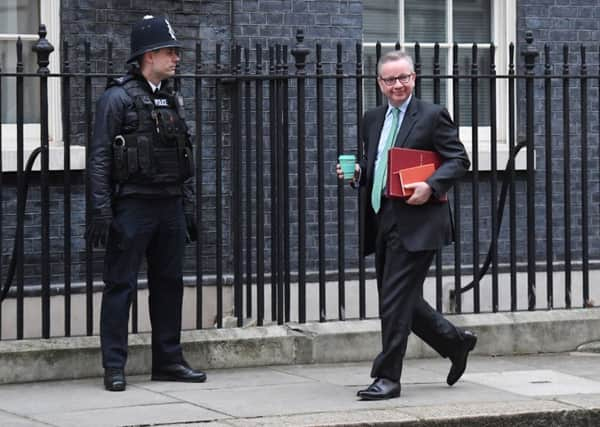David Behrens: Why does this tree plan have to cost the taxpayer a packet?


It’s hard to imagine what other sort of calculation led Michael Gove to announce on Monday that £500m would be spent over the next 27 years on the planting of 50m trees along the M62 corridor from Hull to Liverpool.
Let’s not be negative: this is a good idea. Indeed, it is the first good and original idea to have come from Whitehall in as long as I can remember.
But half a billion quid? Really?
Advertisement
Hide AdAdvertisement
Hide AdMr Gove, who is throwing himself into his work as Environment Secretary by being photographed drinking his coffee from a recyclable cup, forecasts that turning the North into an enormous greenhouse will generate £2bn for the economy by growing tourism, helping rural businesses, increasing property values and limiting the impact of flooding.
But “forecast” is to be taken here strictly in the Michael Fish sense of the word, because although common sense suggests that more trees will profit all of the above, no evidence has been produced that in any way quantifies the benefits.
And how can the planting of trees possibly cost £500m? Given a forest the size of the one Mr Gove describes, that’s £10 a tree. He used to be Education Secretary; he must have known that.
To put the figure in perspective, a fast-growing Scots pine of the variety used in public parks costs £1.15 per sapling on the open market. Even allowing for labour, government arithmetic has inflated the figure by around 800 per cent.
Advertisement
Hide AdAdvertisement
Hide AdThat doesn’t surprise me. Whitehall, as I have observed before, is prone to wildly excessive estimates because it has no idea of the true value of anything. In its world, consultants must be brought in to produce feasibility reports, project managers appointed and huge outsourcing companies hired. The people doing the actual tree-planting, who will work for just the £1.15 plus tips, are at the bottom of a chain that values bureaucracy over practicality.
Let’s drill down into the figures a little more. Forgive me if this occupies more space than a pack of 20 Silk Cut.
A consultant from a leading firm will charge the public body that hires him £300 or more per hour. (I say “him” because we also learned this week that if the public body in question is the BBC, an unfortunate female consultant can expect about half that). A project of this scale would, under current practices, require the services of a team of such people for a couple of years. It’s a gravy train from which between £200,000 and £500,000 a year is ladled out per consultant.
Defra, Mr Gove’s department, employs around 3,400 people – more than enough, you would have thought, to produce any necessary feasibility reports in-house, but that is not how the system works. Civil servants are rarely specialists; indeed, they revel in their status as “generalists”, which is another word for clerks. Their job is just to “manage” the consultants.
Advertisement
Hide AdAdvertisement
Hide AdAt £300 an hour, it’s a poor consultant who can’t manage himself – yet governments have for years considered it “best value” to pay two sets of people to do the same work.
Then there are the outsourcing firms, whose stock in trade is to massively mark up the price of their work in return for guaranteeing “compliance” with whatever convoluted terms the Government has put in force – in other words, covering the backs of the procurement clerks who let the contracts. Should the contract go to someone not ticking all the compliance boxes – and I have some first-hand experience of this – a costly and time-consuming legal challenge is likely to be mounted by one of the firms outbid.
Building a forest in this way is taking a sledgehammer to a walnut tree. If we are going to survey the whole of the North and clear swathes of land for greenery, why not bang heads together at the Environment and Transport Departments and put in a new and faster rail line while we’re at it? Sharing the costs of the two projects could make Mr Gove’s fag-packet calculations look suddenly like value for money.
As it is, we will have to hope that Defra can plant trees quicker than Sheffield Council can chop them down.